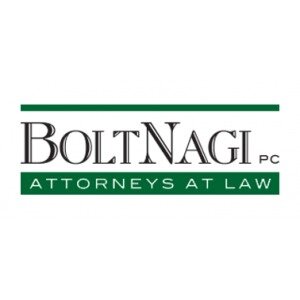Best Animal Law Lawyers in British Virgin Islands
Share your needs with us, get contacted by law firms.
Free. Takes 2 min.
Or refine your search by selecting a city:
List of the best lawyers in British Virgin Islands
About Animal Law in British Virgin Islands
Animal Law in the British Virgin Islands (BVI) is a developing field that encompasses a range of legal issues related to animals. This includes protection and welfare of animals, liability issues connected with animal ownership, and the regulation of commercial and non-commercial use of animals. The BVI, like many other jurisdictions, recognizes the importance of protecting animals from cruelty and neglect, striving to balance animal welfare with human interests and activities. Recent legal developments reflect a growing awareness and shift towards more structured legal frameworks to address these issues effectively.
Why You May Need a Lawyer
There are several situations where you may require legal assistance in the realm of Animal Law in the BVI. These include:
- Cases of alleged animal cruelty or neglect where criminal charges may be filed.
- Disputes over pet ownership, including custody and ownership rights.
- Import, export, and quarantine issues concerning pets or other animals.
- Regulatory compliance for animal-related businesses, such as pet shops, farms, or animal shelters.
- Liability cases linked with animal bites or injuries caused by animals.
- Questions surrounding wildlife conservation and hunting regulations.
Local Laws Overview
The legal framework governing Animal Law in the BVI primarily aims to protect animals from abuse and ensure their welfare. Some key aspects include:
- Animal Cruelty Prevention: Laws exist to deter and penalize acts of cruelty towards animals, including neglect, improper shelter, and inadequate feeding.
- Pet Ownership Regulations: Rules outline the responsibilities of pet owners, including licensing, vaccination, and proper care standards.
- Wildlife Protection: The BVI implements regulations to safeguard native wildlife species and their habitats, including protected status for certain animals.
- Animal Trade and Quarantine: There are specific legal requirements for the import and export of animals to prevent diseases and ensure humane treatment during transit.
Frequently Asked Questions
What is considered animal cruelty under BVI law?
Animal cruelty in the BVI includes physical harm, neglecting basic needs like food, water, and shelter, and failure to seek veterinary care when necessary.
Are there any specific licenses required for owning exotic pets in the BVI?
Yes, owning exotic pets may require special permits, and it is crucial to check with local authorities regarding species-specific regulations.
What penalties exist for violating animal welfare laws?
Penalties may include fines, imprisonment, or both, depending on the severity of the offense and whether it is a repeat violation.
Is there legal protection for animals in cases of domestic violence?
While specific laws may vary, there is growing recognition of the need for protective measures for pets in domestic abuse situations.
How are animal bite cases handled legally in the BVI?
Animal bite cases might involve liability claims against the owner if negligence or failure to control the animal can be proven, potentially leading to compensation for victims.
Who is responsible if a pet causes damage to property?
The pet owner is typically responsible for damages caused by their pet. Insurance coverage may be advisable to mitigate financial risks.
Are there organizations that deal with the welfare of stray animals?
Yes, there are local organizations and shelters dedicated to the rescue, care, and adoption of stray animals in the BVI.
Can animals be included in a legal will?
Yes, animals can be included in legal wills for their continued care, often through the appointment of guardians or financial allocations for their maintenance.
How can I report animal cruelty or neglect?
Instances can be reported to local animal control services or law enforcement agencies. Providing detailed evidence and documentation is crucial for follow-up actions.
What are the regulations surrounding hunting in the BVI?
The BVI has specific hunting seasons and protected species regulations, and permits are often required. It is essential to adhere to these to avoid legal consequences.
Additional Resources
If you are seeking further information or assistance, consider reaching out to these resources:
- Local Veterinary Services
- Animal Welfare Associations and Shelters
- The Department of Agriculture and Fisheries
- Legal Aid Clinics offering services in animal law
- Community organizations advocating for animal rights and welfare
Next Steps
If you need legal assistance regarding Animal Law in the BVI, it is advisable to:
- Contact a lawyer specializing in Animal Law to discuss your specific situation and understand your legal options.
- Gather any relevant documentation or evidence that pertains to your case, such as veterinary records, photographs, or witness statements.
- Stay informed about local regulations and any recent changes in the law that might affect your rights or responsibilities as an animal owner or advocate.
Lawzana helps you find the best lawyers and law firms in British Virgin Islands through a curated and pre-screened list of qualified legal professionals. Our platform offers rankings and detailed profiles of attorneys and law firms, allowing you to compare based on practice areas, including Animal Law, experience, and client feedback.
Each profile includes a description of the firm's areas of practice, client reviews, team members and partners, year of establishment, spoken languages, office locations, contact information, social media presence, and any published articles or resources. Most firms on our platform speak English and are experienced in both local and international legal matters.
Get a quote from top-rated law firms in British Virgin Islands — quickly, securely, and without unnecessary hassle.
Disclaimer:
The information provided on this page is for general informational purposes only and does not constitute legal advice. While we strive to ensure the accuracy and relevance of the content, legal information may change over time, and interpretations of the law can vary. You should always consult with a qualified legal professional for advice specific to your situation.
We disclaim all liability for actions taken or not taken based on the content of this page. If you believe any information is incorrect or outdated, please contact us, and we will review and update it where appropriate.
Browse animal law law firms by city in British Virgin Islands
Refine your search by selecting a city.









